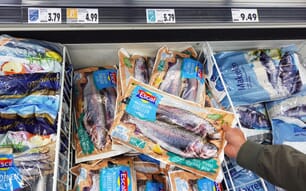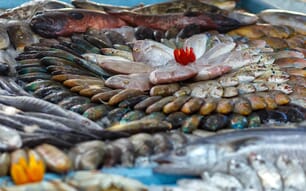
© Shutterstock
In the past few years, the number of plant-based imitation products has increased in the market – in particular for tuna, salmon, hake and shrimp – and there are cases of unclear labelling practices in the EU market. Based on this, the Market Advisory Council (MAC) has made recommendations to the European Commission for an improvement of the labelling legislation for alternative seafood products.
Besides general legislation on food information to consumers, fisheries and aquaculture products are also subject to special labelling and information obligations, which is not the case for plant-based products. These products often use names similar to the commercial designations of fish and shellfish (e.g. zalmon), trademarks alluding to the sea and the fishing sector (e.g. unfishe”), and health claims associated mainly with the sector (e.g. presence of omega3 fatty acids).
According to MAC members, the European Commission should:
- Reassess whether the existing legal framework sufficiently regulates the labelling and presentation of plant-based imitations, which should involve both the maritime affairs and fisheries as well as the health and food safety services of the Commission.
- Assess the relevance of specific rules to regulate the sector of plant-based products, ensuring a level-playing-field in the EU market and accurate information to consumers.
- Guarantee fair competition in the EU market, including through inspection activities, to ensure the respect of fair information practices, in line with the general legislation on food information to consumers.
- Commission a study on the development of plant-based products, including market size and growth, ingredients and production methods, labelling practices, dietary and health impacts of the replacement of marine protein, and consumer understanding.
- Take into account legislative developments in the member states, including both national legislation and voluntary guidelines.
Yobana Bermúdez, chair of the MAC, commented in a press release: “The presence of plant-based products is understandably growing in the market, in response to the interest of consumers in new diets. Nevertheless, some labelling and information practices, potentially due to the lack of a specific legislation for these products, is concerning. At the same time, fisheries and aquaculture operators must meet comprehensive legal requirements on labelling to place their products on the EU market. This regulatory difference between food operators raises questions in terms of a level-playing-field and the provision of accurate information to consumers”.
Click here to read the full advice.




